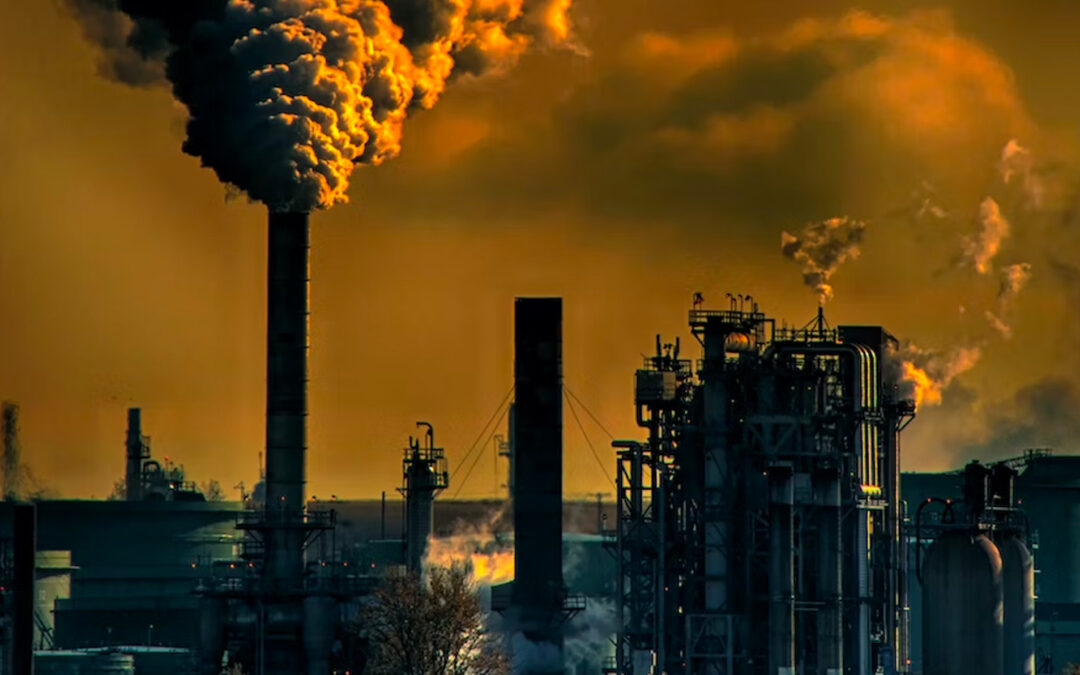Contributing Editors: J. Boen and A. Breckenridge
What is “Sustainability”?
Sustainability has become a buzzword these days, often as we transition away from fossil fuel usage and toxic emissions from heavy industrial processes. While the environmental effects are significant, it is helpful to establish that sustainability has a far greater scope. The UN has developed a comprehensive sustainability framework¹ through which they’ve casted three subsections to sustainability: economic, social, and environmental. The economic and social aspects of sustainability should not be overlooked as these are the foundational building blocks to continued advancement of humanity.
Why Industrial Biology could be a key lever for achieving sustainability?
Our modern society has relied on the use of fossil fuels for energy, food, chemicals, and materials production. This built in reliance wasn’t embedded with malicious intent, in fact, fossil fuels have been essential to the dramatic productivity gain we’ve achieved in the last century and every last one of us has benefited from their use. But as time has passed, we’ve become increasingly aware of the major environmental impacts fossil fuels can have by releasing CO₂ into our environment, contributing to global warming. To combat this, global leaders have set the goals of reaching net zero emissions and keeping global warming below 1.5 degrees Celsius by the year 2050. However, to fully address sustainability, we must be able to achieve these goals in a way that will support continued economic and social development. It is our belief that Industrial Synthetic Biology will be a major force in addressing all of the sustainability aspects we need.
McKinsey & Co has stated that there’s already been 400 use cases for biological production that have the potential to generate $4 trillion in economic value over the next ten to twenty years². In addition to the monetary displacement this would cause to incumbents, the use of biological production will allow us to substantially decrease our greenhouse gas (GHG) emissions to help us meet our 2050 climate goals. Industrial biology has the capabilities to disrupt areas like energy, chemicals, food & agriculture, and healthcare. The aforementioned industries account for over 60% of global GHG emissions³, making the integration of an alternative, imperative. We believe the best candidate for disruption to be industrial biology. One example of its potential in the energy industry is Cemvita Factory, they use engineered microbes to produce hydrogen from oil reservoirs extracts lithium from lithium clay, and produce ethylene from CO₂. Solugen, a Houston based company, uses engineered enzymes to produce specialty chemicals like glucaric acid at scale. In food & agriculture, The EVERY Company and Perfect Day are using synthetic biology to produce animal proteins. Pivot Bio is providing engineered microbes to enhance nitrogen absorption to replace traditional ammonia based fertilizer. Bolt Threads is attempting to create new natural textile fibers using mycelium and spider silk protein. There is a growing cohort of industrial biology companies that have emerged as leaders in the space, focused on developing alternatives to petrochemical processes.
As these technologies mature and scale, this will bring on the fourth industrial revolution. New, clean plants will be built to produce healthier, economically competitive and sustainable goods/materials we use every day in place of the traditional petrochemical factories. Development of this infrastructure will create millions of skilled job opportunities and establish regional independence. As we become more efficient at harnessing the power of biology, we will be less dependent on natural resources, therefore generating new ways to maintain and improve the symbiotic connection we have with our planet. Globally, countries/regions can become more self-reliant to produce and meet the needs of their own population and community. The scale will also significantly drive the cost down to make it even more available and economically viable to produce.
A Case for Industrial Biology: the insulin story.
Manipulating biology to achieve a desired product isn’t a novel strategy. In fact, one of the most famous uses of biology, disrupting the therapeutic industry in the origin story of Genentech (founded in 1976) and how they revolutionized the insulin industry using synthetic biology. Prior to Genentech, 8,000 pounds of pancreas glands from 23,500 animals were needed to produce one pound of insulin⁴. This was an extremely wasteful process to which Genentech realized was an opportunity to produce human insulin by using recombinant DNA in bacterial cells. The company used plasmids to insert genes coding for insulin production and placed them into bacterial cells. Eventually, in 1978 the company was able to get the bacteria to make the proteins needed to synthesize insulin which changed the market forever. Eli Lilly, who licensed the product from Genentech, validated the synthetic insulin in clinical trials and found that the synthetic performed just as well as animal-derived insulin. It significantly impacted the cost and availability of insulin. In fact, it actually benefited the diabetic population by removing any allergies the animal-derived version would cause patients in the past. Genentech, the first biotechnology company, revolutionized the insulin industry and demonstrated one of the first commercial use cases for synthetic biology. It also made the first case for making drugs more available to a broader population.
Similar to Genentech, Industrial Biology allows us to apply synthetic biology for production of commodities based upon the high volume low margin business model. By replacing the traditional Petrochemical based processes, and produced at scale, Industrial biology applications will deliver massive social, economic as well as environmental impacts.
Industrial Biology is a US priority
Petrochemical products have large manufacturing infrastructure built globally but this isn’t the case for biomanufacturing infrastructure that’s needed to produce bio-products at scale. So far, this has been a major bottleneck for industrial biology companies and the industry as a whole. Luckily, there’s been recent interest by the Biden administration to solve this problem by investing in infrastructure development⁵. Developing this infrastructure in the US will not only create jobs for millions of Americans, but would secure our future supply chains and role as leaders in the global bioeconomy. The last two years have been a strong indicator of the lack of resilience in our supply chains and deep reliance on other countries for our products. There lies within this nascent infrastructure an opportunity for the US to build out onshore manufacturing for the bioeconomy and take a leading role in its future. This would allow the US to maintain its leadership to drive the future of our modern world as well as set standards for the future bioeconomy⁶. Securing onshore biomanufacturing facilities would provide sustainability in all forms outlined by the UN’s framework: economic, social, and environmental sustainability.
What’s next?
Advances in genomics, the biofuels bust, and a multitude of other factors over the past twenty years have enabled the opportunity we see in industrial biology today. Engineering biological systems is becoming increasingly cost efficient, leading to greater levels of innovation that can and will displace incumbents. In our next blog, we will dive into “why now” is the opportune time to invest in industrial biology and why the field will emerge as a dominant alternative to petrochemicals in the decades to come.
References:
- UN Sustainability Framework: https://www.undp.org/sustainable-development-goals
- McKinsey BioRevolution report: https://www.mckinsey.com/industries/life-sciences/our-insights/the-bio-revolution-innovations-transforming-economies-societies-and-our-lives
- EPA Global GHG breakdown: https://www.epa.gov/ghgemissions/sources-greenhouse-gas-emissions
- Genentech, Cloning Insulin: https://www.gene.com/stories/cloning-insulin
- Biden’s Executive Order on US biomanufacturing: https://www.whitehouse.gov/briefing-room/presidential-actions/2022/09/12/executive-order-on-advancing-biotechnology-and-biomanufacturing-innovation-for-a-sustainable-safe-and-secure-american-bioeconomy/
In-Q-Tel, Using Biology to Solve Global Issues: https://www.iqt.org/how-can-we-use-biology-to-solve-global-issues/


Recent Comments